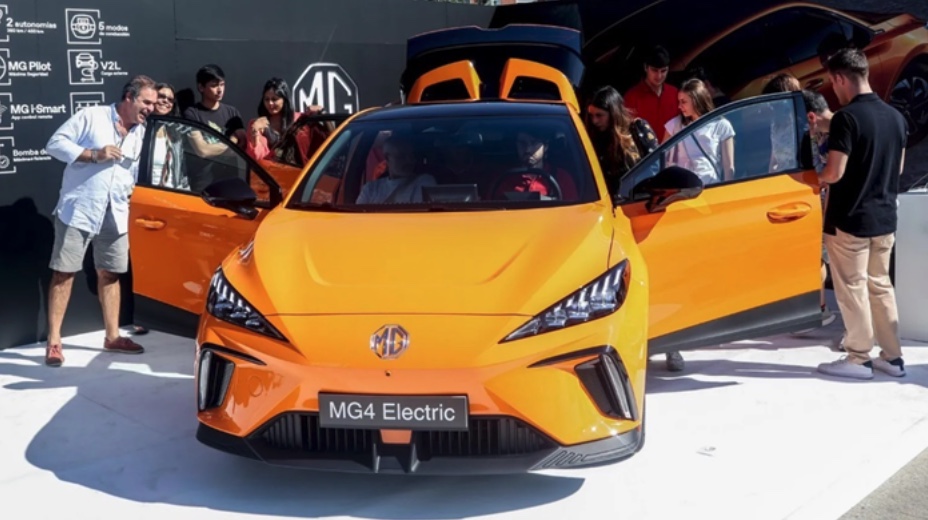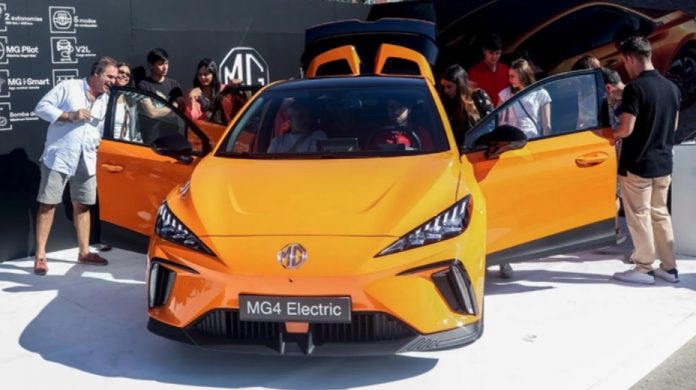สหภาพยุโรป (EU) ได้ประกาศขึ้นภาษีนำเข้ารถยนต์ไฟฟ้าจากจีน โดยเพิ่มอัตราภาษีใหม่ระหว่าง 17.4% ถึง 37.6% นอกเหนือจากภาษีนำเข้า 10% ที่มีอยู่เดิม มาตรการนี้มีผลบังคับใช้ตั้งแต่วันศุกร์ที่ผ่านมา แต่ยังเป็นมาตรการชั่วคราวระหว่างการสอบสวนเรื่องการสนับสนุนของรัฐบาลจีนต่ออุตสาหกรรมยานยนต์ไฟฟ้า
EU ได้อ้างว่าการนำเข้ารถยนต์ไฟฟ้าจากจีนที่เพิ่มขึ้นอย่างรวดเร็วเป็นผลมาจาก “การสนับสนุนที่ไม่เป็นธรรม” ทำให้รถยนต์ไฟฟ้าจากจีนมีราคาถูกกว่ารถที่ผลิตในยุโรปมาก ในขณะที่จีนปฏิเสธข้อกล่าวหานี้
บริษัทที่ได้รับผลกระทบมากที่สุดคือ SAIC ซึ่งเป็นเจ้าของแบรนด์ MG โดยถูกเรียกเก็บภาษีเพิ่ม 37.6% ตามด้วย Geely ที่ 19.9% และ BYD ที่ 17.4% นอกจากนี้ยังส่งผลกระทบต่อบริษัทรถยนต์ตะวันตกที่ผลิตในจีนด้วย
มาตรการนี้อาจส่งผลให้ราคารถยนต์ไฟฟ้าในยุโรปสูงขึ้น และกระทบต่อความสามารถในการแข่งขันของบริษัทจีนในตลาดยุโรป ซึ่งเป็นตลาดส่งออกที่สำคัญของอุตสาหกรรมรถยนต์ไฟฟ้าจีน อย่างไรก็ตาม บริษัทจีนบางแห่งกำลังวางแผนสร้างโรงงานในยุโรปเพื่อหลีกเลี่ยงภาษีนี้ การขึ้นภาษีครั้งนี้อาจนำไปสู่ความตึงเครียดทางการค้าระหว่างจีนและสหภาพยุโรปมากขึ้น ในขณะที่จีนกำลังพยายามฟื้นฟูเศรษฐกิจผ่านการส่งออกสินค้าเทคโนโลยีสูง รวมถึงรถยนต์ไฟฟ้า
โดย BCC NEWS
EU hits Chinese electric cars with new tariffs

The European Union (EU) has announced an increase in import tariffs on electric vehicles from China, ranging from 17.4% to 37.6%, in addition to the existing 10% duty. This temporary measure took effect last Friday, pending an investigation into Chinese government subsidies to the electric vehicle industry.
The EU contends that the rapid increase in Chinese electric vehicle imports results from “unfair subsidization,” allowing these vehicles to be priced significantly lower than those produced in Europe. China denies these allegations.
SAIC, owner of the MG brand, is the most affected company, facing an additional 37.6% tariff, followed by Geely at 19.9% and BYD at 17.4%. Western automobile companies manufacturing in China are also impacted.
This measure may lead to higher electric vehicle prices in Europe and affect the competitiveness of Chinese firms in the European market, a crucial export destination for China’s electric vehicle industry. However, some Chinese companies are planning to establish factories in Europe to circumvent these tariffs. The tariff increase could escalate trade tensions between China and the EU, as China seeks to revitalize its economy through exports of high-tech products, including electric vehicles.
By BCC News

















